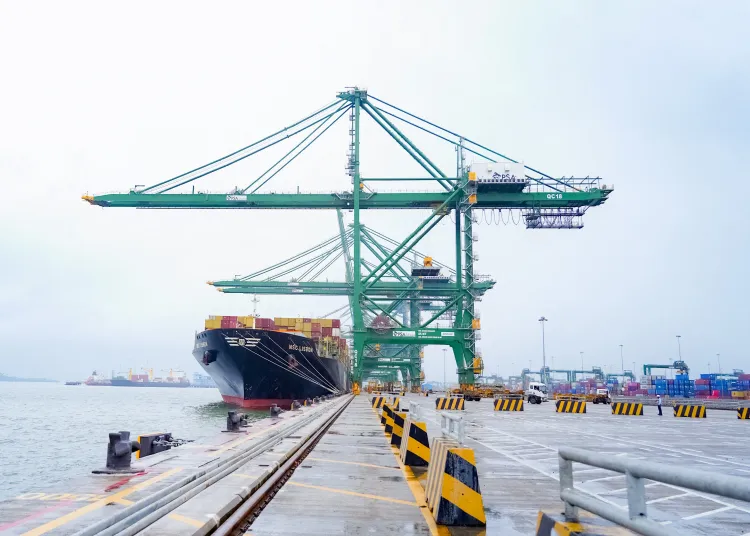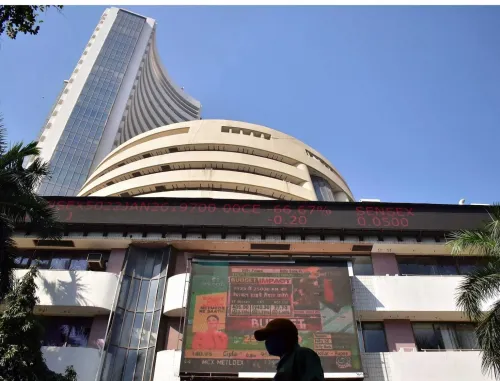How Does JNPort PSA Terminal’s 2nd Phase Inauguration Make Maharashtra Home to India’s Largest Container Terminal?

Synopsis
Key Takeaways
- JN Port - PSA Terminal Phase-2 inaugurates a new chapter in India’s maritime journey.
- Maharashtra solidifies its status as the largest container terminal hub.
- The partnership between JNPA and PSA India enhances capacity and efficiency.
- With Vadhavan Port, Maharashtra aims to rank among the top 10 global ports.
- The terminal’s capacity reaches 4.8 million TEUs.
Mumbai, Sep 4 (NationPress) Chief Minister Devendra Fadnavis announced on Thursday that the inauguration of JN Port - PSA Mumbai Terminal (BMCT) Phase-2 marks the dawn of a transformative chapter in India’s maritime journey, establishing Maharashtra as the home of India’s largest container terminal.
During the inauguration, CM Fadnavis remarked, “This achievement solidifies Maharashtra’s status as the leading cargo handler in terms of port capacity in India. This is merely the beginning. Once Vadhavan Port becomes operational, Maharashtra will secure a position among the top 10 ports globally, influencing international trade for the coming century.”
He further emphasized, “This advancement is a testament to Hon PM Narendra Modi’s visionary strategy for port-led development, implemented with remarkable speed over the past decade.”
“The robust collaboration between JNPA and PSA India has turned this vision into a reality, further enhancing capacity, increasing efficiency, and fortifying India’s global maritime stature.”
Earlier, Prime Minister Narendra Modi, alongside Singapore Prime Minister Lawrence Wong, inaugurated the second phase of the JNPort PSA Terminal (BMCT) via a virtual platform. This development escalates the terminal's total container handling capacity to 4.8 million TEUs.
The Jawaharlal Nehru Port, recognized as India’s premier container port, operates five dedicated container terminals managed by global industry leaders, featuring a deep draft of over 15 metres and the capability to accommodate 18,000 TEU vessels.
This port manages 54 percent of the containerized cargo across all major ports in India.









